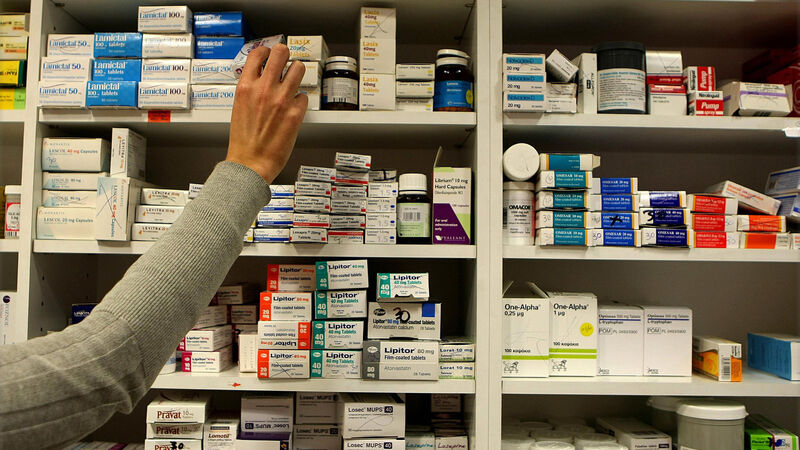Low uptake of free HRT scheme raises concern among pharmacists

Pharmacists say the proposed fee per HRT item is financially unsustainable. File photo
It is still unclear how many pharmacies will sign up to the free HRT scheme, with the health minister on Saturday only saying numbers so far are “greatly above” 20.
The HSE will publish a map of participating pharmacies in less than two weeks, Jennifer Carroll MacNeill told reporters during the Irish Pharmacy Union conference.
There are over 5,000 pharmacists working in Ireland. Many attended the conference in Kilkenny, and emotions were high in the room after the Minister’s speech.
Pharmacists say the proposed fee per HRT item is financially unsustainable.
“I would ask you just to reflect on it,” she said in her speech.
She added: “I’d like to thank those pharmacies who have already signed up. I am very keen to work in a collaborative way always.”
However when asked by reporters how many have committed with just three weeks to go, she declined to say.
When 20 was suggested, she said: “greatly above that, but the reason I want to be careful is I am really respectful of the process of the IPU.”
She added: “I don’t want to be in any sort of dispute with any group and I am really am trying to be respectful.”
Pharmacists talking to the said the low fee is “disappointing”.
One Dublin pharmacist said he only knows one person who has signed, and the sector feels “coerced” by how the plan was announced.
A Galway pharmacist said the proposed fee is “disrespectful” and it makes a mockery of ‘thank yous’ for covid-19 work. Another said it is “a loss-maker” and he cannot afford to accept it.
A number of people said it was “shocking” to hear the Minister advising women last week to change pharmacy if free HRT is not on offer.
The issue is tied up in IPU efforts to remove a 17-year freeze on fees. They say the proposed €5 is not sustainable, and called for the same fee of €6.50 as for the contraceptive scheme.
In his speech IPU president Tom Murray said: “I want to restate our commitment to improving access to HRT for women across Ireland, but we’ve got to make sure the initiative works in practice not just in principle.”
Speaking to the Minister, he added: “but as we have told you, the proposed fee does not cover the actual cost of the service delivered. It risks making the service unviable in many areas.”
The conference also heard pharmacists spend about six hours weekly chasing alternatives to out-of-stock medicines. These include HRT, medicines for ADHD and weight-loss among others.
A survey found 57% of pharmacists dealt with 40 or more shortages in the last four months.
Some 71% saw “negative patient outcomes”, up from 66% last year. Some 82% called for pharmacists to have more clinical powers to find generic alternatives.
Some 83% said they had to borrow items from other pharmacists.
IPU Secretary General Clare Fitzell warned: “When a medicine is in short supply, this can interrupt treatment — something which can be a cause of distress for patients and their families.”
She called for immediate action on changes linked to the new Health (Miscellaneous Provisions) Act 2024.
“Medicine substitution protocols will have benefits for patients, prescribers and pharmacists,” she said.





